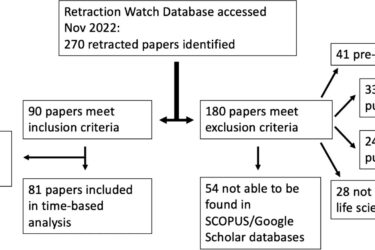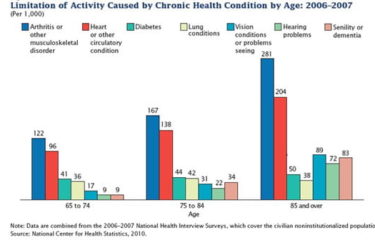Category: Quality Improvement

Retracted papers about COVID-19 are more highly cited than they should be
Earlier this month a study showed that papers about COVID-19 that are retracted tend to be cited far more than average and continue to be heavily cited after retraction. Clearly, scientific publishing and the scientific community need to do better.

Geriatric Preventive Medicine Appointments Covered by Medicare
Medicare offers free preventive medicine visits for those over 65: the Welcome to Medicare visit and the Annual Wellness Visit. Increased awareness of these benefits would improve health care, save taxpayer money, and reduce inequities of preventive medicine care for underserved populations.

COVID-19 puts the spotlight on an unexpected racial disparity in health care
Evidence increasingly suggests that pulse oximeters, the little finger clips that measure blood oxygen, overestimate the blood oxygenation in Black patients. It's a problem that's been discussed a long time that took a pandemic to bring to public consciousness. How can SBM decrease or eliminate such healthcare disparities?

Nepotistic Journals
Research identifies another potential bias in scientific publishing - nepotistic journals.

Direct to Consumer Telemedicine’s Flaws
Telemedicine is here, probably to stay, but with its arrival come new problems.

Charlatans for Christmas
A novel by Robin Cook is a great read with a medical theme. It brings up some serious questions about quality control and medical education.

Bouffant caps versus skull caps in the operating room: A no holds barred cage match
Over the last few years, AORN and the American College of Surgeons have been battling it out over AORN's 2014 guideline that has increasingly led to the banning of the surgical skull cap in the operating room in favor of the bouffant cap. Lacking from this kerfuffle has been much in the way of evidence to support AORN's guideline, but unfortunately that...

Where Are We With the Replication “Crisis”
The replication problem is not as bad as the sensational reporting has suggested. But it is still a legitimate issue that needs to be addressed.

The effort of integrative medicine advocates to co-opt the opioid crisis to claim non pharmacological treatments for pain as solely theirs continues apace
Last week, I wrote about how advocates for quackery were trying, and succeeding, at persuading state Medicaid agencies to pay for acupuncture for pain. This week, I discuss how they are promoting the integration of quackery with medicine. In this case, they are promoting a white paper and trying to influence the AHRQ.


Should Evidence-Based Medicine Be Replaced by Interpersonal Medicine?
An opinion piece in the New England Journal of Medicine complains about the limitations of evidence-based medicine (EBM) and recommends a new approach they call "interpersonal medicine." In my opinion, good clinical medicine is already interpersonal medicine; there is no need for something new.